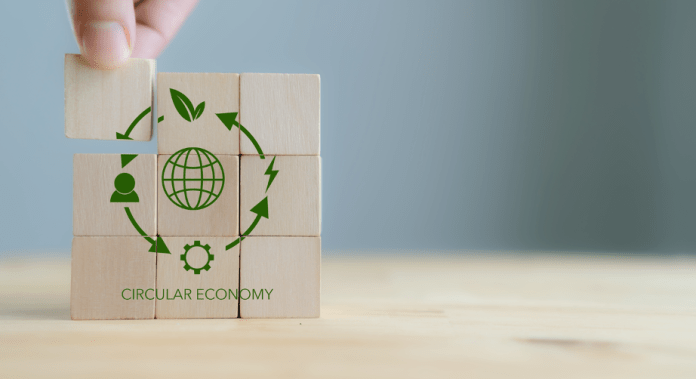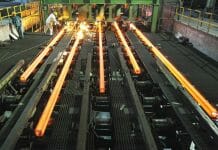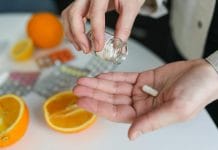By, Alexis MONLUN, APAC Director, GBU Durable Goods, Bostik
As the world welcomes a new day and a new year, health and economic changes sweeping the world is a powerful motivation for us to relook our values. While we prepare to be future-ready, there are certainly areas of interest to keep in view, especially in the scope of manufacturing. Across the globe, manufacturers play a crucial role in answering consumer demands. However, it is nowadays not just enough to be a producer of products. As we face the challenges of sustainable development, there is a stronger demand for innovative, high-performance materials that can breach the barriers of technology yet sustain our environment.
There is a new standard of consumers who are becoming more environmentally driven, and they are opting for sustainable products. While these consumers want to be part of a circular economy, the industry needs to provide ways for them to be able to participate. Therefore, reimagining manufacturing towards a more circular consumption model will not only sustain our environment but also rejuvenate businesses.
In a circular economy, products designed to be reusable can drive growth. Take for example, electrical devices that are designed for easy repairs. Such sustainable productions optimise resources, recover waste and are effective building blocks for a circular economy infrastructure. These value propositions are critical as we face a fast-growing population. The United Nations projects a population growth that will reach 8.5billion by 2030. Hence, efforts to achieve a sustainable environment is more urgent than ever.
Asia is one of the most populous continents, accounting for about sixty percent of the world population. It is also a region that is experiencing growth, urbanisation, and industrialisation at a rapid pace. The speed of this growth has seen the region rise to be a production and consumption dynamo. Whilst still relatively young, Asian states are quickly realising the negative impacts such urbanisation and industrialisation have on the environment. As such, Asian economies are taking substantive steps to transition to a more circular consumption and production model so as to alleviate issues of environmental damage and resource depletion.
A reimagined manufacturing industry driven by sustainability is also pushing the boundaries on technological improvements in adhesives and sealants. Demands for more sustainable products translate to demands for greener, cleaner, and friendlier adhesive solutions.
According to Allied Market Research, global demand for industrial adhesives is targeted to hit $54.9billlion by 2027. Market Data Forecast noted that “the Asia Pacific adhesives market is valued at 21.8billion USD in 2021” and “expected to grow at a CAGR of 5.7% over the forecast period to reach a valuation of 38.2billion USD in 2026”. With adhesives being a key component in many industrial applications, it is even more imperative to ensure a better circular consumption model.
Bostik’s R&D teams are always innovating to produce sustainable adhesives solutions to meet growing expectations. We work hand-in-hand with our manufacturing customers to create various types of sustainable adhesives solutions for their specific needs. An example of this would be the automotive industry, where our recyclable adhesives solutions are fully compatible with substrates they are bonded to and will not generate any adhesive waste when the adhesives melt down at the products’ end of life.
While the recent health challenges facing the world has yet to recede completely, population growth is not at a standstill. The demand for a greener, more sustainable future is the stimulus for the future direction of adhesives.
A greener adhesive is crucial in building a more sustainable world. Such adhesives solutions make objects last and drastically reduce the impact of many of our industries. There is a key need to consistently evaluate our adhesives solutions so that a growing proportion contributes to the emergence of a more circular economy, and a more sustainable world. Linear economic models place a heavy burden on resources and the planet’s ecosystems where products are consumed and then discarded. To nurture a more sustainable environment, a transformation must be made in the processes of how things are made and used.
The acquisition of Fixatti by Arkema, Bostik’s parent company, is a step towards addressing bonding challenges for the construction, technical coating, battery, automotive and textile printing markets. Fixatti’s specialty in high-performance, environmentally-friendly, thermobonding adhesive powders provides an avenue for Bostik to strengthen its offering of hot melt adhesive solutions. Bostik is committed to continued investments in its regional technical centres to facilitate the development of local technologies in Asia and extend speedier and more personalised service to its clients across Asia.
Strong, safe, and reliable. These are mottos that underline Bostik’s innovations, which makes Bostik such an ideal partner for manufacturers across industries. The solutions are made safer, as Bostik applies innovative technologies on its smart adhesives to meet regulatory compliance, address sustainability and environmental challenges.
Asia has always been an important region for Bostik; our renewed vigour and commitment to our partners and the community are as strong as ever as we forge ahead in the new year.









